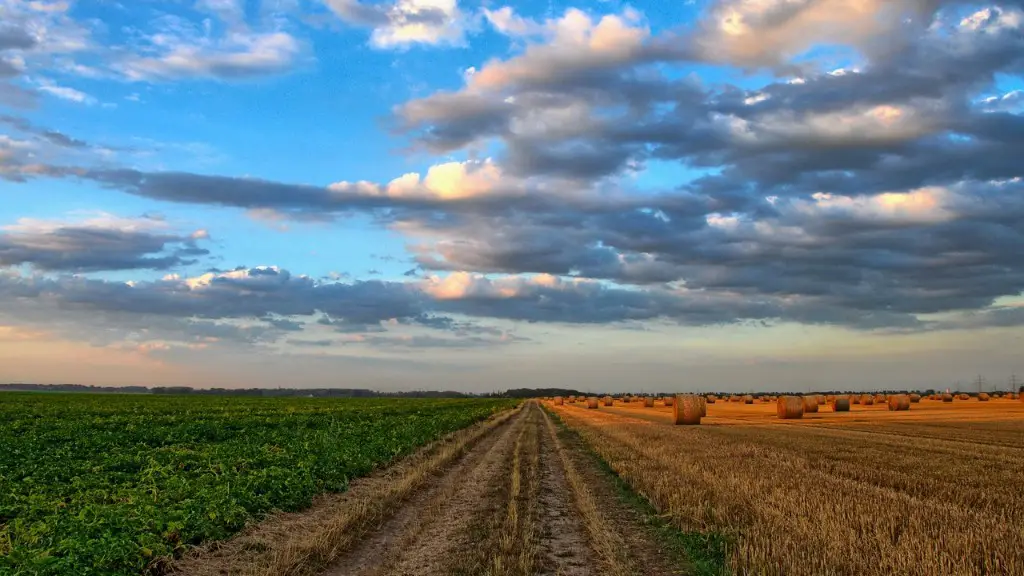Animal agriculture is an important sector of the global economy; however, it has several environmental impacts, including the emission of harmful gases, loss of essential plant and wildlife habitats, and the generation of animal waste. With the rising awareness of global climate change, it has become increasingly important for farmers to identify strategies to minimize the environmental impacts of animal agriculture. Here are a few ways farmers can reduce the environmental impact of animal agriculture.
Optimize feed in order to reduce methane emissions
Methane is a potent greenhouse gas that is generated from the digestive system of cows and other ruminant animals. Farmers can reduce methane emissions by optimizing the feed for the animals. This involves changing the diet of the animals and adding certain supplements containing fats, proteins, and carbohydrates to their feed in order to reduce digestive time and, subsequently, the production of methane.
Implement ‘green’ agricultural practices
Farmers can also reduce the environmental impact of animal agriculture by adopting ‘green’ agricultural practices, such as conservation tillage, crop rotation, and cover cropping. Conservation tillage reduces the amount of soil disruption caused by traditional farming practices, and crop rotation and cover cropping help to maintain soil fertility, reducing the need for synthetic fertilizers. These practices can also help to reduce water usage, improve water quality, increase soil organic matter, combat erosion, and reduce the loss of essential plant and wildlife habitats.
Increase animal feed efficiency
Increasing animal feed efficiency is another effective way of reducing the environmental impact of animal agriculture. Feed efficiency is defined as the amount of feed that an animal consumes in relation to its weight gain. Improving feed efficiency reduces the amount of feed wasted, leading to lower agricultural labour and input costs. Farmers can increase feed efficiency by selecting feeds for the animals that are nutritionally designed to meet the animals’ needs.
Practice sustainable manure management
Manure is a major by-product of animal agriculture and is composed of organic matter and minerals. Poor management of manure can lead to water and air pollution, making it essential that farmers practice sustainable manure management techniques. This includes regularly monitoring manure storage to prevent leakage, as well as using the manure for fertilizer or energy production. It is also important to use best management practices when spreading manure on the land, as this can help to reduce the risk of runoff and soil contamination.
Harvest crops responsibly
Animal agriculture is closely linked to crop production, which can also contribute to environmental degradation. Therefore, farmers should strive to harvest crops responsibly in order to minimize the impacts of crop production. This includes adhering to best practices when harvesting, as well as ensuring that harvesting activities are conducted in ways that respect the environment. Practices such as diversifying crop loads and leaving buffer strips between fields can also be beneficial in reducing environmental impacts.
Reduce the number of livestock
In order to reduce the environmental impacts of animal agriculture, it is important that farmers reduce the number of animals they are producing. This can be achieved in a number of ways, including using fertility control methods, reducing the size of herds, limiting animal movement, and controlling the number of young animals born. Reducing the number of animals will have a positive effect on the environment, as well as reduce the costs associated with animal agriculture.
Minimizing Water Waste
The production of animal-sourced food uses a significant amount of water, so it is important that farmers take steps to reduce water waste. This can be done by selecting drought-tolerant crops, implementing water-saving irrigation systems, and using water recycling techniques. Monitoring water usage and reducing water waste will help to reduce the overall environmental impacts of animal agriculture.
Encourage Sustainable Animal Husbandry Practices
It is important that farmers also ensure that their animals are kept in conditions that are suitable for their welfare. This includes providing adequate shelter, access to food and water, and appropriate space for movement. Sustainable animal husbandry practices should also be encouraged and enforced, such as controlling breeding, implementing a pasture rotation system, and encouraging sustainable foraging techniques for pasture-raised animals.
Preferentially select Animal proteins with minimal environmental impact
Farmers should also consider selecting animal proteins with minimal environmental impact. This means looking for proteins that are sustainably-sourced, and that have minimal impacts on the environment, such as grass-fed beef, free-range poultry, and wild-caught fish. Additionally, farmers should strive to purchase animal proteins from local sources, as this can help to reduce the amount of fuel used for transport, as well as support their local economy.
Limit Agricultural Landscapes
Finally, it is essential that farmers limit agricultural landscapes to help reduce the environmental impacts of animal agriculture. This can be achieved by fencing off areas of land to protect them from overgrazing and erosion, as well as replanting vegetation to provide habitats for wildlife. Restoring grasslands and hedgerows can also help to restore and protect habitats, as well as create new ones. Additionally, farmers should ensure that they are not overstocking their fields, as this can lead to overgrazing and soil erosion.


